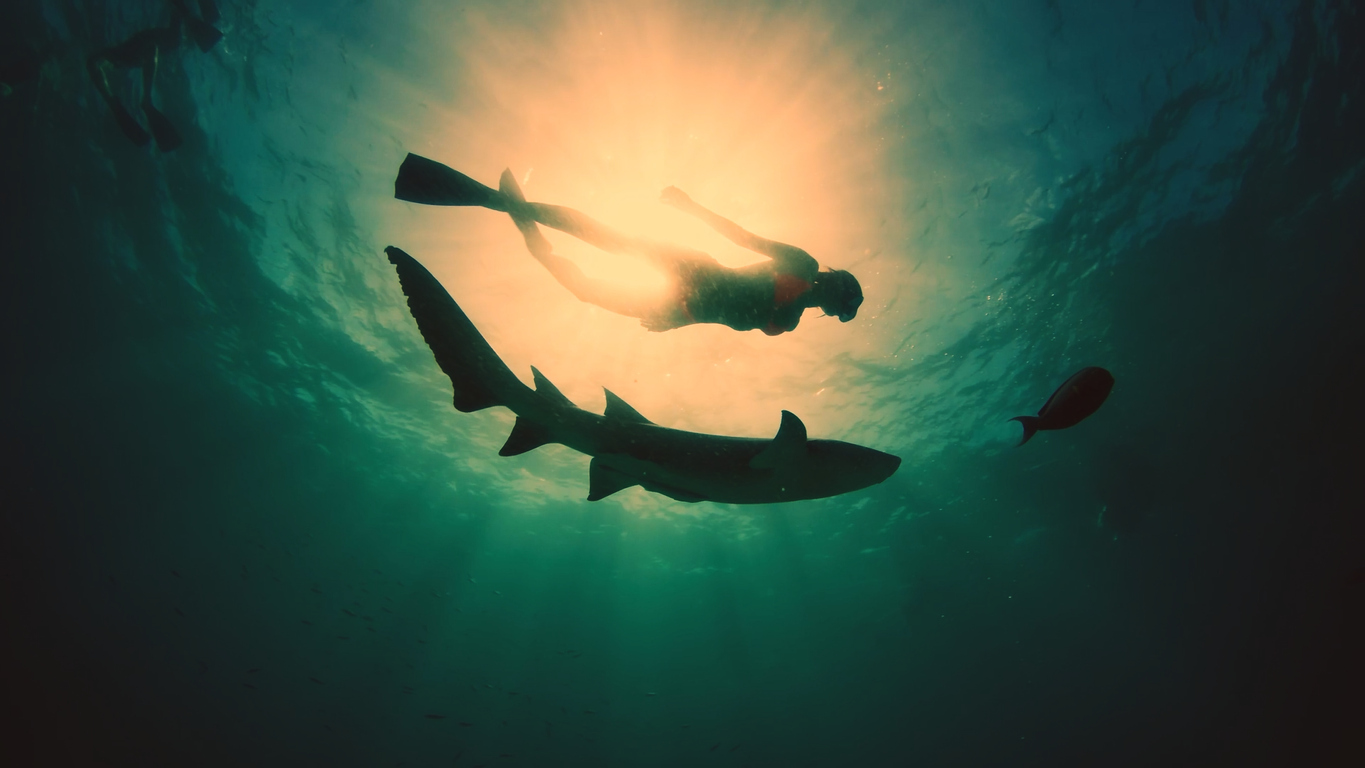FEAR is often misunderstood, and I’ve spoken about it numerous times, explaining that it stands for “False Evidence Appearing Real.”
Fear is frequently rooted in misunderstanding and incorrect information. Depending on our cultural landscape, often referred to as ‘culturescape,’ we may find ourselves adopting many falsehoods as truth.
In our corporate and executive landscapes, it is common to approach challenges with a risk-averse mindset. We often perceive threats where they may not exist. I recently had a personal experience that highlights how my culturescape influenced me, and how a young, patient, and caring teenager reminded me of how fear is False Evidence Appearing Real.

The teenager is my incredible daughter, and my fear was sharks. Based on my culturescape, these majestic creatures are often misunderstood as ruthless predators when, in fact, they play a vital role in the balance of marine ecosystems. Sharks are often demonized due to movies like “Jaws,” which portray them as mindless killers. However, this portrayal is not accurate. Sharks are essential for maintaining the health of marine ecosystems, and their presence is a sign of a healthy ocean. They are selective hunters and, in most cases, do not pose a significant risk to humans.
The fear of sharks is deeply ingrained in our culture. From movies to news reports, we are constantly bombarded with sensationalised stories that portray them as villains. This fear has led to the unnecessary killing of millions of sharks each year. Like many other false-truths, it is time to reevaluate our relationship with these creatures and recognise the opportunities they present.
Looking beyond the perceived threat
Sharks really do need to move on from being seen as just a threat; they really are an opportunity. They are a vital part of the ocean’s biodiversity and contribute to the health of marine ecosystems. Most species are not harmful to humans. By protecting them, we can ensure the sustainability of our oceans and the industries that rely on them, such as fishing and tourism. And just like human’s, each shark is different and shouldn’t be tarnished by the same brush.

Now, I am about to drink my own ‘cool aid’ here because I was somewhat resistant when my daughter tried to provide me with a different perspective. My FEAR was deep. But little my little she shared information and videos to educate me and challenge what I had long believed. She encouraged me to step outside my beliefs, and to take a moment and see the beauty and these majestic creatures. Which is quite a feat, as I have known to be stubborn at times. But through my work, I know what FEAR is, so this was a perfect opportunity for me to grow and gain a more informed perspective.
My daughter did such a great job that she and I went snorkelling with Rays and Sharks earlier this year. And from the moment I arrived, I was so well informed that I did not feel any anxiety. In fact, I loved every moment of the experience. I would have never taken that step if it were not for her.
Our Responsibility As Corporate Leaders
As corporate and executive leaders, it is our responsibility to challenge the status quo and question the narratives we are fed. We must seek out accurate information and make informed decisions based on facts, not FEAR.
Continuing with my shark experience, I have learned and experienced how we, people, are the predators of sharks, and that they need to be respected, understood, but not feared in the same way. I have also learned that through our desire to provide adrenaline shark diving experiences, and the use of lures, like burly to entice closer, and even aggravating the shark, we are actually training sharks to engage with us in a more aggressive way. We are encouraging the very behaviour we fear.
I have seen this within business also, by being so fixated on risk and fear, many businesses inadvertently create behaviours, cultures, and issues that they were actually trying to avoid.
I will also highlight another obvious point; when we slow down a little and really listen to other people’s perspectives, often our team members, there is a real opportunity to learn and grow. Even from what some people we might normally consider an unlikely source. People can surprise you.
It’s important for corporate leaders to recognise when fear is based on misunderstanding and take the necessary steps to overcome it. This may involve gathering more information, seeking advice from experts, or challenging their own assumptions. By doing so, corporate leaders can make better informed decisions and improve their outcomes.
In conclusion, many FEAR’s are often based on misunderstanding and wrong information. Just like sharks, which are often misunderstood as ruthless predators, fear can be overcome by gathering more information and challenging our assumptions. By doing so, corporate leaders can widen their knowledge, gain different perspectives to make informed decisions and improve potential outcomes. Within this growth and new perspectives, new opportunities and even innovation can be your reward.
It does take courage to step forward and be willing to explore and embrace what our culturescape has conditioned us to fear.
If you have found value in what we have shared, feel free to check out other blogs by the Unearth team and subscribe to our Newsletter.
Feel free to share your thoughts on the blog or any information we have provided, we would welcome hearing from you through hello@unearth.com.au
Subscribe to our Newsletter!




